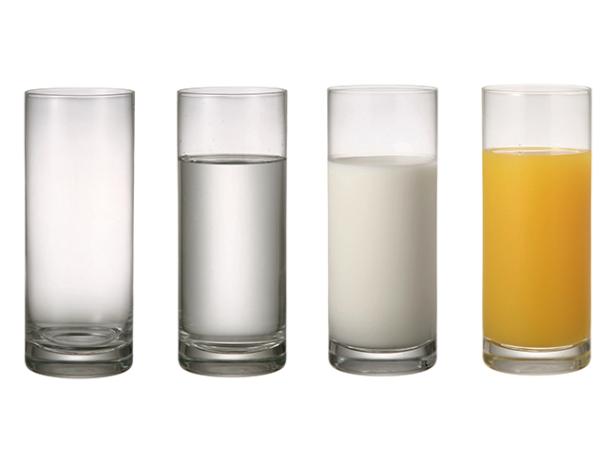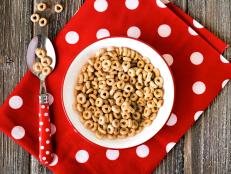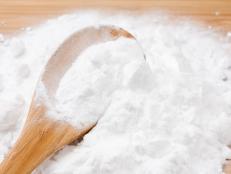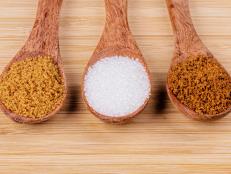The Best Beverages For Your Health

With so many beverages lining store shelves plus media hubbub swirling about the so-called positive and negative effects of various drinks, what you should be sipping? Researchers at Harvard School of Public Health’s Department of Nutrition reviewed the wide selection of beverages available and ranked them into 6 levels based on the amount of calories, good-for-you nutrients, and scientific evidence on the negative and positive effects on health. Not too surprising, water topped the list, but that doesn't mean it's the only healthy choice.
Unsweetened tea, coffee and milk have a place in your healthy eating plan, while juice, alcohol and sweetened beverages should be consumed sparingly.
Water helps restore fluid losses and helps rehydrate your body. Although we're often told to drink 8 cups of water each day, the amount of water we need varies from person to person. It depends on the amount of food you eat, how active you are and the climate you live in. Most people get about 80% of their fluids from beverages, the rest comes from food. The Institute of Medicine's guidelines are 15 cups per day for men and 11 cups per day for women (coming from a combo of food and drinks).
Tea and coffee are two of the most commonly consumed beverages in the world. Without all the fancy add-ins (like whipped cream, shaved chocolate, heavy cream), they can provide numerous nutritional benefits and help meet your daily fluid requirements. Green tea has been touted for helping prevent heart disease while coffee has been shown to have explosive amounts of cell-protecting antioxidants. Although studies have found that up to 3 or so cups of coffee or tea are okay, these drinks also tend to leach out calcium and iron, so try to keep it to that amount.
Milk provides 9 essential nutrients including protein, calcium, and vitamin D. The USDA's Dietary Guidelines recommended choosing low-fat or fat-free (AKA skim) milk to minimize saturated fat and cholesterol. Drinking milk and soy milk can also help you meet the recommended 3 servings of dairy each day.
Although most of your fluid requirements should be met with those listed above, these beverages can fit into your healthy lifestyle when sipped on in small amounts.
These include zero- or very low-calorie beverages sweetened with aspartame, sucralose, saccharine or stevia. Although these choices are better than sugar and calorie-filled sodas they shouldn't replace good old water.
Fruit juice, vegetable juice, sports drinks, vitamin fortified water and alcoholic beverages have their advantages and disadvantages. According to the Dietary Guidelines for Americans, a maximum of 4 fluid ounces of 100% fruit is recommended per day. Although you can get in many vitamins and minerals through vegetables juice, many processed varieties contain high amounts of sodium. Alcohol also should be consumed in small amounts with the recommendations being 1 serving per day for women and 2 for men.
The least recommended of all the beverages are those sweetened with sugar that don't provide many nutrients. These include sodas, fruit drinks, and many commercially sweetened lemonades. High-calorie smoothies should also be consumed sparingly. These drinks have been linked to weight gain and can increase your risk for type 2 diabetes.
Bottom Line: There are a wide variety of beverages that can fit into a healthful diet. Understanding which you should be drinking more verses less of can help keep you on the right track.
Toby Amidor, MS, RD, CDN, is a registered dietitian and consultant who specializes in food safety and culinary nutrition. See Toby's full bio »

































